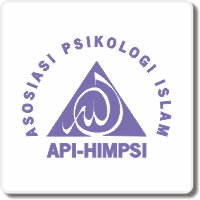Patience and Adjustment for New Students In Darussa'adah Teupin Raya Islamic Boarding School Aceh
DOI:
https://doi.org/10.32923/psc.v4i1.2312Keywords:
Patience, Adjustment, new santriAbstract
The concept of patience can be categorized as one of the topics of study in positive psychology, such as gratitude and forgiveness. Self-adjustment is one of the abilities that must be possessed by every individual. In everyday life, individuals usually use certain ways that are acceptable to their environment to adjust to the goal of being able to meet and satisfy their needs. This study aims to determine the relationship between patience and adjustment to new students at the Darussa'adah Islamic Boarding School Teupin Raya. This study uses a quantitative-correlation method. The sample amounted to 300 new students with a sampling technique based on the proportionate stratified random sampling technique. This study uses two scales, namely: the patience scale (32 items) which refers to the patience aspect of Subandi (2011) with a reliability coefficient value of r = 0.860, and the self-adjustment scale (40 items) which refers to the self-adjustment aspect of (Desmita, 2009) with a reliability coefficient value of r = 0.918. The results of this study indicate that the value of the correlation coefficient between patience and adjustment to new students at the Darussa'adah Islamic boarding school Teupin Raya is r = 0.970 with p = 0.000. This means that there is a very significant relationship between patience and adjustment to new students at the Darussa'adah Islamic Boarding School Teupin Raya.
Downloads
Published
Issue
Section
License
Copyright Notice
The Psychosophia: Journal of Psychology, Religion, and Humanity is under the Creative Commons Attribution 4.0 International (CC-BY 4.0) License, according to which:
1) Authors retain copyright and grant the journal the right to first publication, with the work simultaneously licensed under the Creative Commons Attribution (CC-BY 4.0) that allows the sharing of articles published with the acknowledgment of authorship and the initial publication in this journal.
2) The authors are authorized to make additional contracts separately for distribution of the version of the work published in this journal (for example, publication in an institutional repository or as a chapter of the book), as long as there is recognition of authorship and initial publication in this journal.
3) Authors are authorized and encouraged to publish and distribute their work online (for example, in institutional repositories or on their personal pages) at any time before or during the editorial process, as it increases the impact and reference of the published work.






